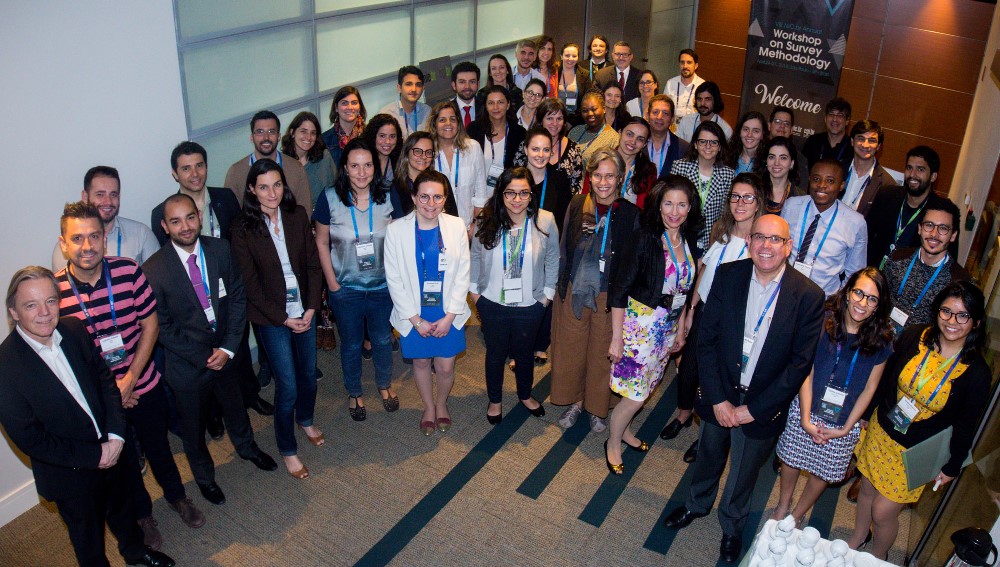Smart cities and digital economy guide discussions at the VIII NIC.br Survey Methodologies Week
Training conducted by Cetic.br brings together data producers and users on ICT
Starting last Tuesday (24), the 8th edition of the NIC.br Survey Methodologies Week gathers in São Paulo researchers, public policy makers, representatives of civil society and international organizations, in discussions guided by the digital economy and smart cities. An annual initiative of the Regional Center for Studies on the Development of the Information Society (Cetic.br) of the Brazilian Network Information Center (NIC.br), the NIC.br Survey Methodologies Week continues until Friday (27) promoting the exchange of experiences among participants from 10 countries.
The program focused on the discussion about smart cities and digital economy as well as some of their socioeconomic implications, such as electronic waste, privacy, and cybersecurity. In addition to addressing the concepts behind these topics, participants debated the challenges in measuring them. The event also includes two days entirely dedicated to a course on survey methodology that delves into techniques for testing and evaluating a questionnaire. "The meeting goes beyond the proposal of addressing theoretical and practical concepts related to survey methodologies, it also stimulates the debate among data producers and users about emerging topics related to Information and Communication Technologies (ICT)", highlights Alexandre Barbosa, manager of Cetic.br.
On the first day, participants analyzed the efforts of various organizations and initiatives to establish metrics regarding the "intelligence" of cities or the "digital maturity" of economies. Keynote speaker Karin Breitman, from Rio Tinto, pointed out that there are no one-size-fits-all solutions for all contexts. "When we talk about smart cities, we must understand the stakeholders and the issues of that city that need to be addressed," she stated, also recalling the need for collaboration among actors with different skills and interests.
The current scenario for smart city initiatives and technological trends that can promote more innovation (Internet of Things, big data analysis, cloud computing, and artificial intelligence) were also detailed during the first day of debates, which also included a panel with representatives from three United Nations organizations: the UNESCO Regional Office for Science in Latin America and the Caribbean, National Offices, UNICEF, and UN-Habitat – who shared perspectives and initiatives related to cities from the Sustainable Development Goals (SDGs) established by the UN.
Program
The program of the VIII NIC.br Survey Methodologies Week continued on Wednesday (25) with discussions about the concepts, guidelines and tools for data collection on electronic waste, developed by the United Nations University, including a presentation by the Renato Archer Research Center (CTI) on a Brazilian experience around electronic waste. The program continued with discussions on the legal scenario of personal data protection and privacy in Brazil, as well as the importance of information security practices for data protection and privacy, in addition to the presentation of the framework of the Organization for Economic Cooperation and Development (OECD) for measuring digital security risk management practices in organizations.
Today (26) and tomorrow (27), participants will have the opportunity to learn new methods to test and improve the quality of survey questionnaires. The course covers 19 different methods, as well as their variations, and combines information from the survey methodological literature with practical advice.
Access the photo album of the VIII NIC.br Survey Methodologies Week: https://www.flickr.com/photos/nicbr/albums/72157694662894721.

(Photo: Ricardo Matsukawa)
This content was automatically translated with the support of artificial intelligence.


